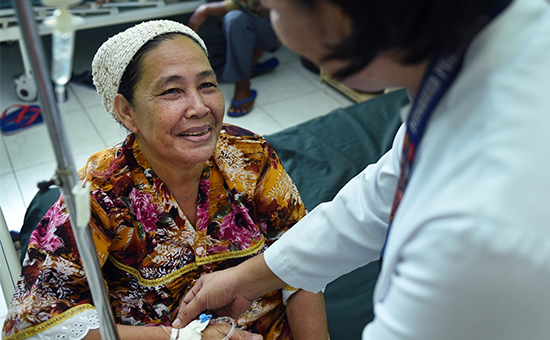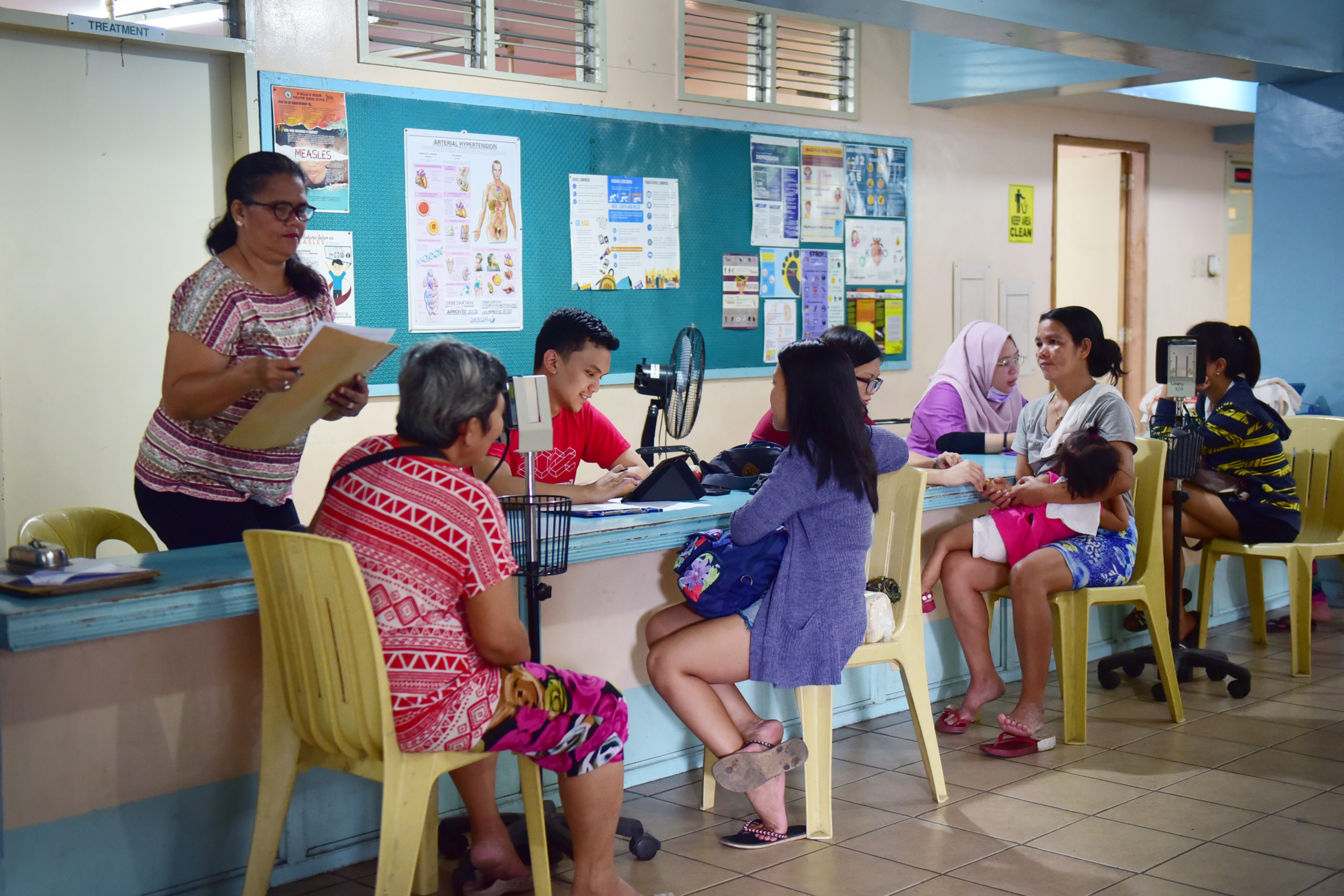
12 Jan Celebrating HRH2030 Philippines: Key Achievements in Advancing Human Resources for Health
From October 2017 through June 2020, USAID’s HRH2030 program in the Philippines supported the Philippines Department of Health to strengthen recruitment, deployment, development, retention, and performance management of the health workforce to improve access to quality TB, family planning, and maternal and child health services for vulnerable populations. HRH2030 published the program’s end-of-project final report in January 2021. This article summarizes the key program achievements as stated in the report’s executive summary.
As a strategic development partner to the Philippines Department of Health (DOH), USAID supports the DOH’s goal of having an adequate number and type of human resources for health, with the competencies and skills necessary to deliver Universal Health Care (UHC). HRH2030 worked to strengthen the health workforce to improve TB and family planning services, two top government priorities, by focusing on three main objectives: (1) Improve health workforce planning and distribution for TB, family planning, and maternal and child health services; (2) Strengthen human resources for health (HRH) performance management and development with a focus on TB, family planning, and maternal and child health; and (3) Advance the use of data for HRH decision making at central, regional, and provincial levels.
At the program’s conclusion, HRH2030’s significant achievements include:
The DOH is using an evidence-based approach to develop new staffing standards for improved delivery of primary health care. HRH2030 introduced the World Health Organization’s (WHO) Workload Indicators of Staffing Need (WISN) method to assist the DOH in determining optimal staffing number and distribution among health facilities and support the development of new national staffing standards for primary health care. The DOH is now institutionalizing the WISN methodology and cascading it to all levels of the health system to help guide local government units and partners on optimum numbers of health workers required per cadre and level of care for improved quality primary health care services using a rational and scientific approach. This will greatly support the government’s efforts to revitalize primary level health facilities and provide UHC for all Filipinos.

Photo: Patients at the Canossa Health and Social Center receive medical attention. Credit: Alan Blue Motus, HRH2030 (2020)
A sustainability roadmap is in place to help the DOH prepare for transition of Global Fund-supported HRH for TB. The Sustainability Roadmap with detailed HRH Transition Pathways provides stakeholders with data on the critical donor-supported cadres that may need to be considered in a multi-year, detailed transition plan to local resources should the Global Fund reduce its resources to the Philippines.
Health workers have better opportunities to enhance their professional competencies through a new online learning platform. In partnership with the DOH and local stakeholders, HRH2030 supported the creation of the national DOH Academy e-Learning portal, an efficient learning management platform which enables public and private sector health workers to flexibly access free-of-charge, practical skills-building courses with continuing education accreditation, so they can deliver TB, family planning, and other primary care services according to national standards of care. The COVID-19 crisis confirmed USAID’s and the DOH’s smart investment in e-Learning, because having the online system to quickly orient and train health workers proved to be lifesaving. Development partners including the WHO, UNICEF, and Management Sciences for Health, to name a few, have already used this platform for their own COVID-related training to quickly reach as many Filipino health workers as possible to stem the pandemic.
The DOH is on track to adopt National Health Workforce Accounts (NHWA) for improved availability, quality, and use of data to inform policy and manage the health workforce. HRH2030 supported the DOH in the development of processes, procedures, and a roadmap to guide the implementation of the WHO’s multi-sectoral and integrated NHWA system. NHWA enables the Philippines to better collect, analyze, and use comprehensive HRH data to develop evidence-based policies and manage HRH in support of UHC. Overall, NHWA will be the system used to improve data accessibility, availability, and quality in the Philippines, with the goal of responding rapidly to HRH issues and guide the journey towards UHC and progress toward the sustainable development goals.
A new National HRH Master Plan sets the stage for HRH improvements for UHC over the next two decades. The National HRH Master Plan 2020-2040 represents the culmination of HRH2030’s technical support to the DOH in terms of evidence-based health workforce policy and planning. The Master Plan will serve as a guide to the country to meet the HRH component of the UHC Act, defining the current situation of the HRH sector; the short, medium, and long-term strategies to address the issues that impact HRH performance; the governance and accountability mechanism among HRH stakeholders; the plan’s monitoring and evaluation approach; and the communication plan to guide its dissemination.
The complete version of the final report is available here. Find all resources developed during the HRH2030 Philippines program at the Infographic and Resource Library on the HRH2030 website.





